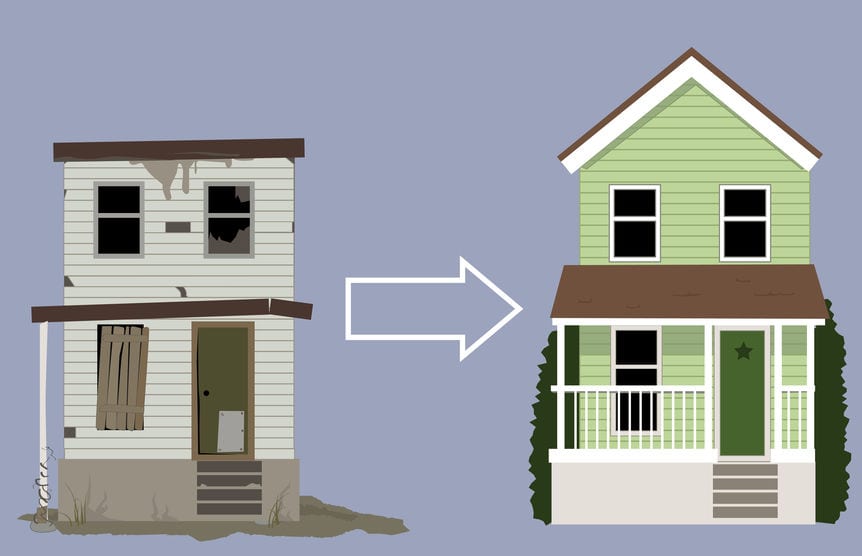Buying a fixer-upper, if you buy the right one, can really be a great investment. If the right things are wrong with a house, it can become both your dream home, as well as earn a great deal of equity.
You don’t need to be a DIY guru wither. Patience and time are all that’s needed.
Here’s how you can tell if that home you’re looking at fixing up is worth it.
Evaluate the Price
A fixer-upper should be priced as such. Try not to fall in love too quickly with a home that “just needs a little TLC.” make sure you do your research and make sure the price is right for the work needed.
Also look at other homes in the neighborhood to see how much they sold for and how much work they’ve had and how fancy they are. you don’t want to over-improve for the neighborhood, as this could affect the selling price in the future if you decide to sell.
Start Evaluating What Improvements Are Needed
An ideal fixer-upper is a home that offers a lot of opportunities for “instant equity.” This means that if your turned around and sold the home right away, you would get your money back.
Some improvement tasks can be as simple as painting or landscaping, which you can accomplish with sweat equity.
Other tasks may require the work of professionals and cash to pay them. It’s those projects you want to carefully evaluate against the home’s price.
Which Hire-a-Pro Projects Add Instant Equity?
Some home improvement projects that require a pro stay at the top of the list of things that will be worth the cost instantly.
Based on data gleaned from the “Remodeling Impact Report” (RIR) from the National Association of REALTORS®’, if these three projects are on your fixer-upper’s list of must-haves, then you may have found your dream equity-builder:
- New roof
- Hardwood floors
- Insulation
While those three are pretty safe bets. Almost any project can be worth it with a fixer-upper if the price is right. For example, a complete kitchen renovation can cost $65,000 and recover only about $40,000 when you sell. But if the fixer-upper is discounted enough, think how amazing it would be to cook in a kitchen you designed yourself.
Evaluate Your Ability to Deal with Disruption
Whether you’re a DIY Jedi or content to let the pros handle the remodel, if your patience is shorter than your potential home’s to-do list, a fixer-upper may not be a good choice.
Renovating a bathroom alone can take two to three weeks. Add hardwood flooring, a new kitchen, and siding, and you’re looking at a whole summer’s worth of rehab.
When considering a fixer-upper, evaluate the limits of your emotional energy as well. Inevitable project pitfalls and delays can be wearing. Only if you have the time, patience, and emotional endurance for a fixer-upper will it be a good fit for you. And only you can determine that.
But if you can budget your time and money, and employ the right fixer-upper strategies, you might find yourself with a double reward: A home that’s worth far more than you paid, and the joy of knowing you helped get it there.
